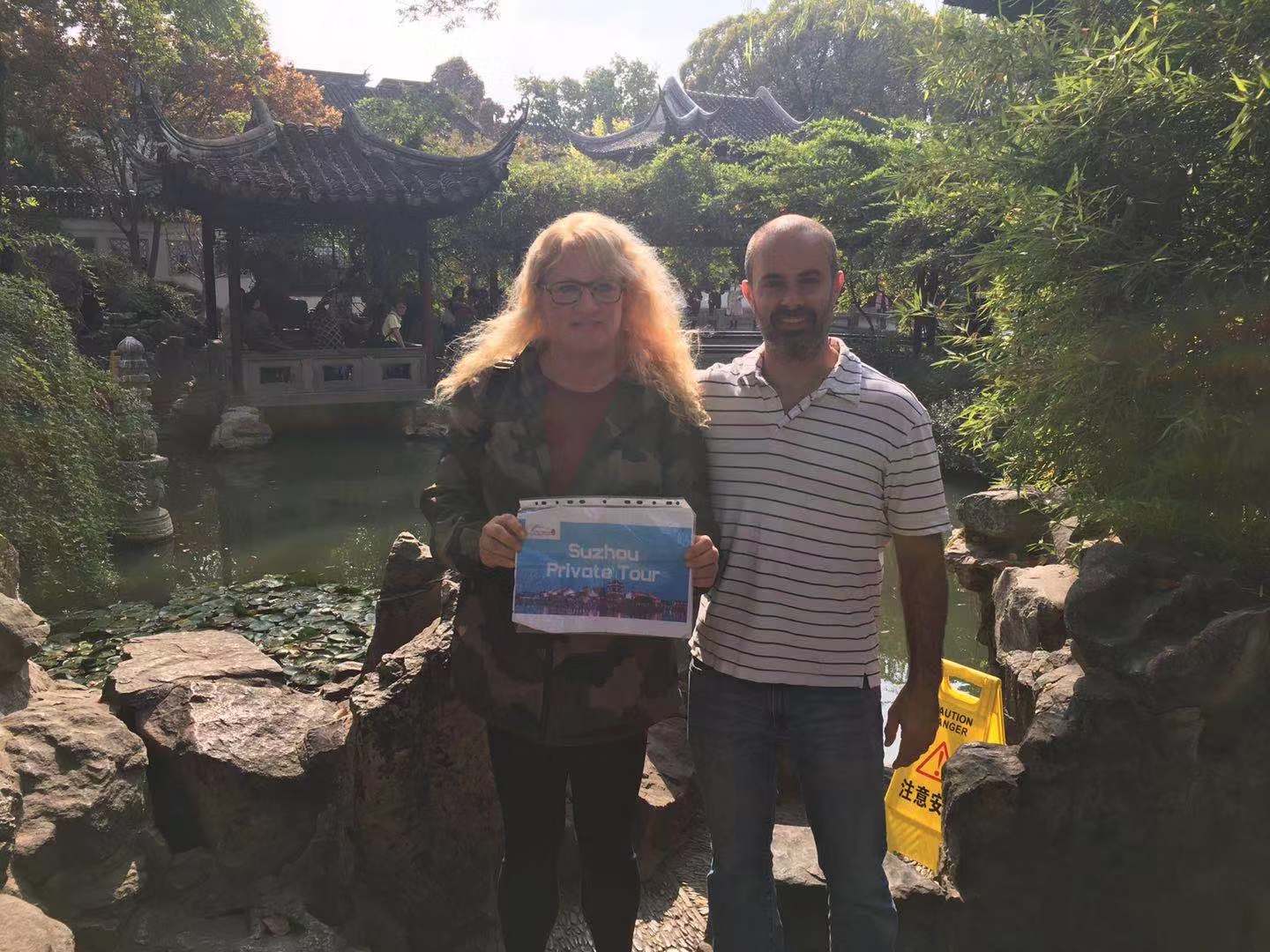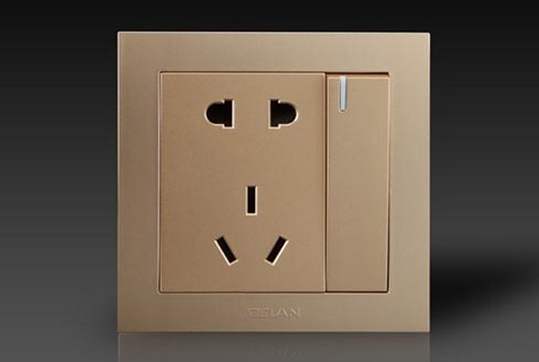24 Hours Hotline: +86 137-3541-1378
Email:[email protected]
24 Hours Hotline: +86 137-3541-1378
Email:[email protected]
Having trouble on planning your China tour from Canada? Canadians who are planning travelling to China need to apply for a China tourism visa at your city in Canada. We strongly recommend you submit your application under the guidance of China visa policy for Canada citizens. Besides China visa, an all inclusive China tour that starts from Canada and lead you to Beijing, Xian, Shanghai and more destinations without hassles is what we recommend. Shanghai Private Tour are top China tour operator, we specially design some top China tours from Canada that covers a great variety of highlights of China popular holiday destinations.
Top Selling China Tour Packages From Canada
9 Days Beijing Xian Shanghai Tour From Canada
Want to explore China from Canada in a leisurely way? Tick off the top highlights of Beijing Xian Shanghai to get an unforgettable holiday! These fine-designed China packages with knowledgeable guide include suitable arrival and departure cities which have more choices of international flight, lead your family and friends to visit the top tourist cities in China.


Frequently Asked Questions about planning a China tour from Canada
1. Is China a safe place for tourists?
China is a safe country to travel for tourists from Canada and women don't have to be particularly concerned. However, all single travelers should use common sense and take precautions because being on your own just might single you out for some swindling. Be careful when taking a taxi at night or staying alone in a hotel.
2. What language is mostly spoken in China?
Chinese mostly speak Mandarin since Mandarin it's our official and most common speaking language in China. Mandarin is commonly referred to as "Chinese". It is the most commonly adopted Chinese language variant in government, education, business and media. It's also spoken popularly more than any other Chinese language dialects in some cities, such as Hokkien in Fujian and Cantonese in Hong Kong and parts of Guangdong.
Tibetan can still found in parts of Tibetan Autonomous Region and it's bordering provinces. In Xinjiang, many Uyghurs still speak Uyghur, a language that comes from the Turkic language family. In the Inner Mongolia province, you'll still be able to find some people who speak Mongolian and can read the traditional Mongolian script.
3. What's time difference between China and Canada?
There is a time different between China and Canada,time difference between Beijing China and Ottawa Canada is 13 hours. Beijing is ahead of Canada. But the time is different when Canada observe daylight saving (from 10 March 2019 to 03 November 2019). During this period, time difference between Beijing and Ottawa is 12 hours.
4. When is the best time for Canadians plan a China Tour from Canada?
China can be visited year-round for peopele from Canada. China is such a big country with diverse climate, and some areas are better visited at certain times of the year. For example, Tibet and Western Sichuan have comfortable temperatures in the summertime, but most coastal will be scorching at that time of year.
Summer in China(Jun.-Aug.): Mountainous regions were perfect at this time of year, but most of Eastern China was extremely hot and humid with afternoon thunderstorms. If backpacking China in the summertime, pack light clothes that dry fast. Stay hydrated because you'll be sweating a lot if you're spending time outdoors.
Spring & Autumn in China (Mar.-May & Sept.-Nov.): Spring and autumn are the best time to travel around China. Most cities like Beijing, Xian, Shanghai,etc will be at comfortable temperatures, and mountainous regions will be slightly chilly but not too cold. In autumn, certain parts of the country will look gorgeous as the leaves change colour. If you're able to, you should visit China from Canada in autumn.
Winter in China (Dec.-Feb.): Winter in China varies vastly in the northern and southern parts of the country. Hong Kong and other southern cities will be quite comfortable, but Beijing, Harbin and other northern cities sees sub-zero temperatures and the occasional snowfall. Mountainous regions will be snow-covered which may make travel difficult but it will be extramely beautiful. Moreover, air pollution is at it's worst in the wintertime, so if you have sensitive lungs consider avoiding China at this time of year.
5. What guestures should avoid during travelling in China from Canada?
Understanding Chinese gestures, etiquette and manners are important if you're traveling abroad or moving to China. You're a guest in another culture's country. When you in China, here are some gestures you should stay away from so that you make the best possible first impression:
1) No finger-pointing. It is considered extremely rude. Using chopsticks or other cutlery to point at someone or something is another action to avoid as well. Pointing is bad enough, but pointing at someone with dirty chopsticks is somewhat antagonizing.
2) No Touchy Exchanges (At First). You will discover that in China, people are not very touchy when it comes to interactions with others. Especially with strangers or meeting new people, you should not handshake, hug, kiss, or touch them in any way. Instead slightly nodding your head is a perfect introduction.
3) Don't be late. Punctuality is very much valued in many Mandarin-speaking nations. Being fashionably late is considered a bit tacky, so try to arrive on time to dates and meetings, however casual!
4) Don't Ever Wink or Whistle. In China, the gestures of winking and whistling have very negative connotations. They are aggressive in nature and there is a sexual meaning behind them so it’s best to avoid them.
6. Is visa required if Canadians are traveling to China?
China visa for Canadian is required. As a visitors with a Canadian passport are required to apply for a Chinese Group eVisa. It is a tourist visa that is issued to tourist groups comprised of least 2 members traveling together both into and out of China. The Chinese Group eVisa is issued as a stand-alone document, not as a sticker on a passport, like the Chinese Tourist Visa. This visa is valid for 30 days after arrival. It also grants a Single Entry.
7. Would you recommend travel to China during holidays? Does China celebrate Thanksgiving Day like in Canada?
Traveling to China during holidays is not recommended. You could end up stranded and your travel plans ruined. So unless you have to, try to avoid holidays. Chinese holidays are not fixed and the holiday period shifts. Be sure to gather information before you plan your trip.
Although traditionally people in China don’t celebrate Thanksgiving Day, nowadays many young people do. They want to express thankfulness to all of the people who have helped them.
8. Exchange Rate Canadian Dollor to Chinese Yuan?
The exchange rate between Canadian Dollar to Chinese Yuan is 1 Canadian Dollor =5.28 Chinese Yuan now. At present, China will accept and convert into Chinese Renminbi such foreign currencies as US dollar British pound, Euro, Japanese yen, Australian dollar, Austrian schilling, Belgian franc, Canadian dollar, HK dollar, Swiss franc, Danish Krone, Singapore dollar, Malaysian ringgit, Italian lira, Macao dollar, Finnish markka, and Taiwan dollar. Exchange rates are issued every day by the State Administration of Exchange Control. Before leaving China, unused Chinese Renminbi can be converted back into foreign currency with a "foreign exchange certificate" which is valid for six months.
9. How to travel from Canada to China by Flight?
It takes around around 13 hours from Canada to China, the most popular flight routes from Canada to China are Toronto Pearson Intl - Shanghai Hongqiao Intl, Toronto Pearson Intl - Beijing Capital and Vancouver Intl - Shanghai Hongqiao Intl. Cheap flights to China are available on Air Canada which has daily direct flights to Beijing and Shanghai from Vancouver (YVR) as well as some direct flights from Toronto (YYZ). Other airlines that fly on this route include Air China, China Eastern Airlines, Cathay Pacific, United, Continental, and American Airlines.
10. What is the best way to get around in China?
1). Flying domestically in China is a good way to get around, especially over long distances or if you're short on time. Domestic flights are quite cheap, even cheaper than taking the train in some cases. But flights in China are often randomly delayed due to some reasons. Depending on the route, it may save time to take the train than flight: For example, Beijing to Shanghai is 5.5 hours by high-speed train and costs $80. Flying between the two cities takes 2 hours, but you also need to add some time for airport security as well as getting to/from the airport. In this case, the train makes more sense. However, if you need to cover a large distance (let's say Kunming to Beijing), then flight is a better option. A 3.5-hour flight for $85 makes a lot more sense than an 11-hour high-speed train ride for $165 (or 46-hour slow sleeper train ride).
2). Trains in China are amazing: Outside of the most mountainous places in the country, China is extremely well connected by train.
China got the largest high-speed rail network in the world, and trains are typically very punctual. Trains are a comfortable and easy way to get around while backpacking China. High-speed trains are fast but pricey: The best way to travel quickly between a number of larger Chinese cities – high-speed train numbers begin with a 'G' prefix and typically only offer seating (they run during the daytime, so this isn't a problem). 2nd class is the cheapest option, but it is still quite comfortable enough.
Here are some useful high-speed rail routes:
Beijing – Shanghai – 5.5 hours, $80 for 2nd class
Beijing – Xi'an – 4.5 hours, $74 for 2nd class
Xi'an – Chengdu – 3 hours, $38 for 2nd class
Hong Kong – Shanghai – 8.5 hours, $144 for 2nd class
Hong Kong – Guangzhou – 1 hour, $31 for 2nd class
Guangzhou – Yangshuo – 2.5 hours, $20 for 2nd class
Shanghai – Hangzhou – 1 hour, $10 for 2nd class
For booking trains in China and viewing all available options, recommended web: www.trip.com.
3). Slow train is a perfect option for long overnight journeys
There's something very relaxing about rolling through the countryside with a book and some tasty ramen. You can get almost anywhere in China by slow train. Like the high-speed trains, they're also very punctual. Slow trains typically have three different classes – hard seat, hard sleeper, and soft sleeper.
If you're taking a short ride in the day time, go for hard seat. It's not actually hard, and experiencing a hard seat carriage on a Chinese train is an experience in itself. Hard sleeper is the most common option for long overnight journeys. Like hard seat, hard sleeper isn't actually hard. It's a decently comfortable bunk, there are six beds per section. Soft sleeper is the most comfortable, but also the most expensive option. There are four beds per section, and it has a door that can be closed to keep out any noise from the hallway.
For booking trains in China and viewing all available options, recommended web: www.trip.com.
4). Buses are frequent, cheap, and fairly punctual: If there's anywhere that trains don't go to in China, then buses will.
The main downside to bus travel is that journey times can depend greatly on traffic conditions. Buses also need to stop at road checkpoints in certain provinces, whereas trains obviously don't. Most large cities have a number of bus stations, so double-check that you're going to the right one if you plan on taking buses in China.
11. Can Travelers from Canada drink Tap Water in China?
We suggest the tourists don't drink tap water in China when you travelling. The tap water is undrinkable in most of cities in China. All local water should be considered contaminated. Bring all tap water to a good rolling boil if you want to drink, brush your teeth or make ice cubes. Otherwise, buy capped bottled water from reputable brands.
12. What should I pay attention to the table manners when I travel to China from Canada?
Chinese
table manners are the traditional styles that are used for eating in
the country. Unlike the West, where everyone has their own plate of
food, in China the dishes are placed on the table and everybody shares.
In most dishes in Chinese cuisine, food is cooked in bite-sized pieces
and easy to hold and eat. Therefore, chopsticks are used at the table
instead of forks and knives. When eating Chinese food, avoid sticking
your chopsticks upright. In Chinese culture, this is associated with
death and funerary customs. But the table manners are relatively relaxed
and informal in Canada, but Quebec is a little more formal. Dining
etiquette for utensils. Use Continental table manners. When cutting
food, hold your fork in your left hand and your knife in your right
hand.
13. What are the electrical plugs used in China? Is it as the same as in Canada?
The standard voltage used in China is 220V, 50HZ. The voltage and plugs type in China and Canda are are not totally same. In China the power plugs and sockets are of type A, C and I. The standard voltage is 220 V and the standard frequency is 50 Hz. In Canada the power plugs and sockets are of type A and B. The standard voltage is 120 V and the standard frequency is 60 Hz. The type A mainly used in North and Central America, China and Japan. This socket only works with plug A. Perhaps you will need adapters for some sockets, many middle and high-class hotel wash rooms have transformer plugs for electric shavers and hair dryers, but it is better to be prepared with an adapter plug.


Useful Tips to Know before you are traveling to China from Canada
Are you planning on traveling to China from Canada/Toronto/Vancouver and take an unforgettable trip in this charming country? To ensure that you have a successful trip, Shang Private Tour provide some useful tips that you need to know. For more questions on how to travel from Malaysia to China, email [email protected] or call+86 137-3541-1378 for details.
Bring toilet paper
One of the unusual things to know before going to China is that most Chinese toilets do not provide toilet paper. Hotels and nicer restaurants will have it available, but it’s always a good idea to carry a roll of toilet paper or a box of tissues!
Bring hand soap or hand sanitizer
Like toilet paper, hand soap is not standard in many Chinese bathrooms. Carry a small bottle of hand sanitizer with you just to be sure.
Catching taxis in China
Taxis in China are cheap and plentiful. Most drivers will not speak English, so it’s a good idea to get your destination address written in Chinese by somebody at your hotel.
Personal space
China is a crowded place, and the locals have become accustomed to a much smaller personal space than we are accustomed to in the west. Don’t be surprised if you’re jostled or shoved when queuing – it's just part of Chinese culture.
Internet & SIM Card in China
You should get a Chinese SIM card when you arrive in China since internet access in China is restricted – many sites are completely blocked unless you have a VPN. But what about internet access? Actually it is easy to stay connected while in China. If you pick up a local SIM card, you'll have signal basically everywhere you go. Purchasing a China Unicom SIM card is recomended as the other telecoms in China often don't work with foreign phones. Head to a China Unicom shop with your passport and pick a plan. Costs are fairly reasonable, CNY 100 for one week use with unlimited data. As for WiFi in China, WiFi is often pretty slow in China and usually requires a Chinese phone number to connect to it. I’d recommend getting a decent data plan and using that instead.
Tipping Practice for Visitors to China
It is a common practice for visitors to tip the tour guide and driver in recognition of their good service. Hotel bellboy expects your tips as well. It is not customary to leave tips at hotel or local restaurant as the bill usually includes 10-15% service charge.
Taking photos in China
The Chinese love to take photographs, and don’t be surprised if a local tries to snap a sneaky photo of you or even comes up to ask for a picture with you. Like in most other countries, it always pays to ask permission before photographing a person or a government building.
Download Weixin (or WeChat)
China's premier messaging app is Weixin (WeChat in English) and everybody you meet – expats and locals alike – will have it. Download the free app and set it up, as it's a great way to keep in touch with locals who may not have social media like facebook, whatapp.
Most importantly, don't be afraid to get off the beaten track. While Beijing, Shanghai, and Xi'an are worthy of their international fame, there is so much more to China than these cities and their cultural sites. China is a massive country with a rich history, over thirty distinct cultural groups, and a huge variety of landscapes to explore – don't limit yourself to the same few sites everybody else visits.
Bargain in China
At markets in China, bargaining is expected and you may even get lucky when asking for discounts in stores and shopping malls where prices are displayed - it never hurts to ask. When visiting market stalls it's a good idea to shop around before purchasing an item as prices may vary and this then gives you an idea of how much you should be paying. When you're ready to discuss prices, go in low and work your way up to the amount you're willing to pay and don't forget to smile and be friendly - it will get you further.
Pharmacies in China
Chinese pharmacies offer both western and eastern medicine at very reasonable prices. Prescription medication can usually be purchased without a prescription (within reason) by simply providing the pharmacist with your identification.
Finding a doctor in China
Chinese hospitals can be crowded and daunting, but most major cities also have specialized hospitals catering to foreigners living and working in the country. Even in the crowded public hospitals, many doctors will speak English.
Don't be shy in restaurants
Chinese waiters and waitresses aren’t as proactive as you may be used to, so don’t be afraid to throw your hands up and call for the fuyian if you want service. Also be aware that conventional western service is hard to come by. Don’t be surprised if your starter, main, and dessert all arrive at once while your friend still waits for their first dish.
Prev: China Tours For Seniors
Wechat: Chinaprivatetour
24 Hours Hotline:
+86 137-3541-1378
* Travel First, Pay In The End
* Local Tour Provider, NOT the Third Party.
* We Know Hangzhou Better. We can offer Lowest Price Guarantee
* Free Cancellation Up to 24 Hours in Advance
* Satisfaction guaranteed trip plan to deeply connect with the people and culture
* Private Guide with 5+ years guiding Experience
* Professional Driver with 10+ years driving Experience
* 24/7 fully backed up by professional team
* Reply within 24 hours
1 to 1 tailor-made service from our professional travel advisors for the most sophisticated
Constantly excellent reviews for attraction, hotel and service Competitive price
Local experts provide quality tours Best selected knowledgeable local guides Authentic local restaurants
7*24 hours available to create you a worry-free tour. No Hidden Fees and absolutely no pressure to buy. Secured







